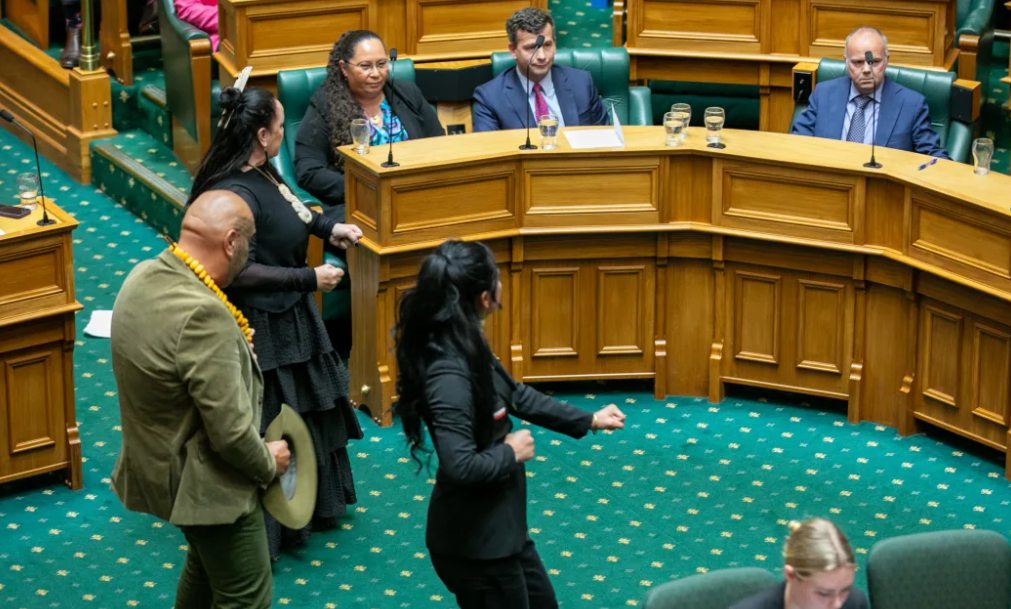
Instead of a debate which might have raged for hours, after two speeches, Leader of the House Chris Bishop moved an adjournment of the debate until June 5.
For those struggling to keep up with this, under parliamentary standing orders, there can be no debate or amendment to such a motion.
The surprise move ensures the three MPs, Hana-Rāwhiti Maipi-Clarke, Debbie Ngarewa-Packer, and Rawiri Waititi, can be in the House when the Budget is delivered today.
If the privileges committee recommendations had been passed before then, Ms Maipi-Clarke would have been suspended for seven days and the co-leaders for 21 days, all without salary.
It is not hard to accept the Te Pāti Māori members transgressed against the rules of behaviour in Parliament when they left their seats to perform a haka at the end of the voting process for the first reading of the contentious Treaty Principles Bill in November.
But it is the unprecedented punishment recommended which has been widely criticised, criticism unlikely to abate between now and June 5.
The 21-day suspension would be seven times longer than the longest previous suspension — three days for former prime minister Robert Muldoon in 1987 who had criticised the Speaker in a press release. He too was unrepentant, but his pay was not docked during his sojourn from the House.
Much has been made by privileges committee chairwoman Judith Collins of how intimidating the haka was and the right to cast votes without impediment. But, in this case the votes had already all been cast, although not tallied and reported back.
The committee sought advice from the Clerk of the House David Wilson on the issue of penalties, and then foolishly ignored it.

"If such a recommendation were to be proposed, we would recommend that the committee adopt it only with broad support among its members (although not necessarily unanimity)," he said.
"Adopting a substantial change to the House’s practice, if done in the context of a particular case, could appear arbitrary. We therefore would also recommend that the committee set out clearly its rationale in arriving at the particular penalty or penalties that it wished to propose, and an explanation of how each penalty would be proportionate to the offence, so that a consistent approach could be taken in future."
Anyone reading the privileges committee report would be hard-pressed to see the evidence of rationale, as Labour leader Chris Hipkins pointed out in his speech.
His proposal was for the co-leaders to be suspended for 24 hours, to take effect on the first sitting day following the conclusion of the Budget debate, and Ms Maipi-Clarke to have no further sanction since she had already been stood down on the day of the haka.
The delaying of the debate will only be of any value if that time is used to see if there can be a sensible compromise on the punishment.
On the wider issue of inclusion of tikanga in the House, it has been suggested a committee, chaired by former speaker Adrian Rurawhe, could look at this.
It is not a good look for our democracy to propose subjecting a minor party to a punishment well beyond anything previously handed out, prompting suggestions of banana republic or, as one commentator put it, milk powder republic behaviour.
The narrow majority decision of the privileges committee on punishment has overtones of a miffed and pig-headed parent dealing with a recalcitrant teenager who refuses to apologise for poor behaviour. The temptation in such circumstances is to insist on an over-the-top penalty which risks punishing the parent as much as the teenager.
The punishment for the mum and dad coalition government in this is that the issue is still dragging on, giving exposure to Te Pāti Māori the minor party could only dream of and contributing to ongoing disquiet about the coalition government’s attitude to Māori.













